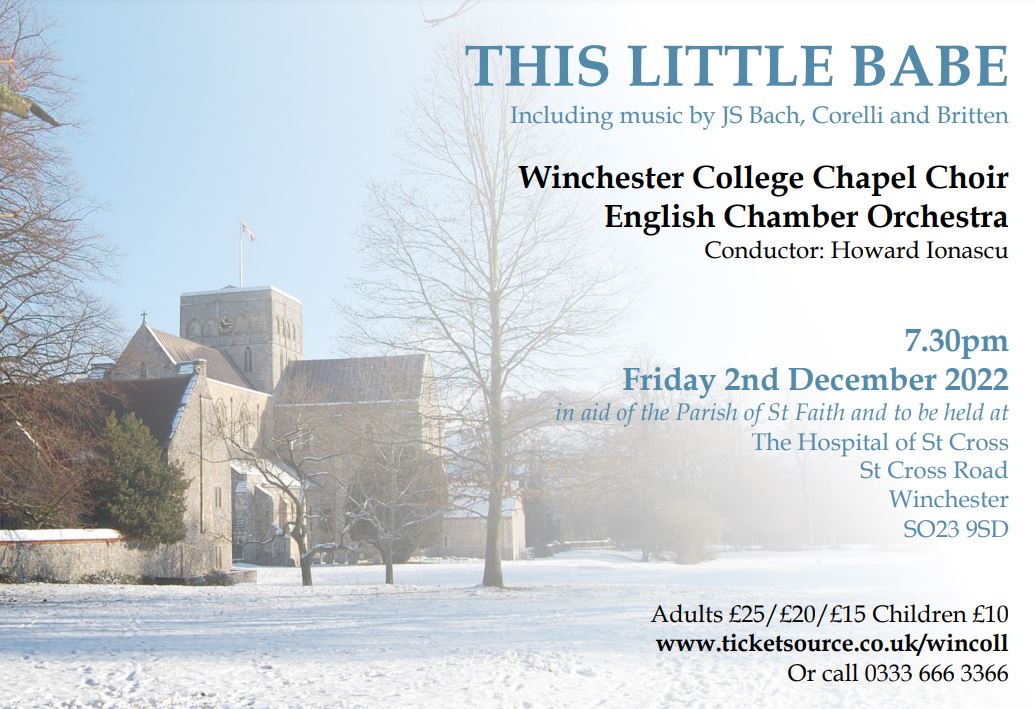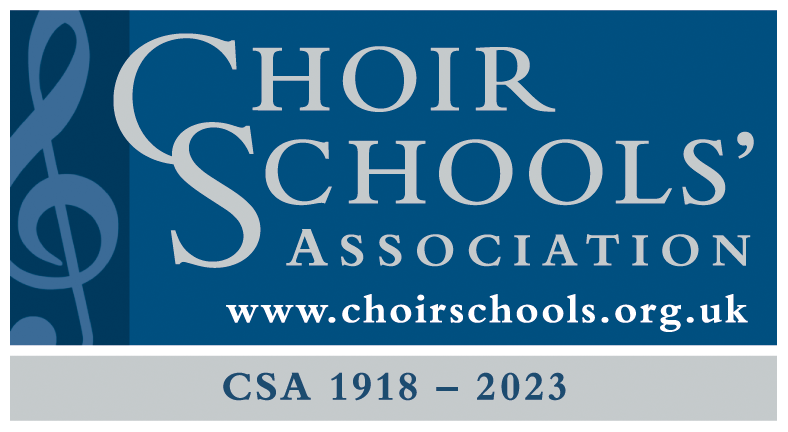Saint Cecilia’s Day Concert - the Quiristers at Winchester Cathedral
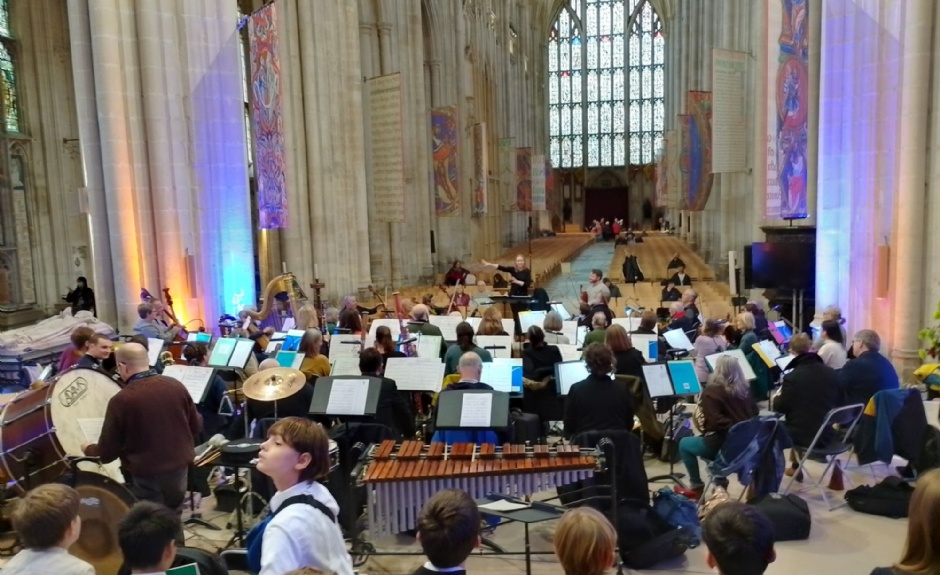
Saint Cecilia, patron saint of music, was celebrated on Tuesday night at Winchester Cathedral with a tremendous concert under the direction of Sarah Baldock, newly appointed Director of Music at Winchester College.
Sarah chose a fittingly ambitious programme to showcase the combined talents of the Quiristers, Winchester College Chapel Choir, Winchester Music Club Choir and Orchestra, and Glee Club (including many Quirister parents).
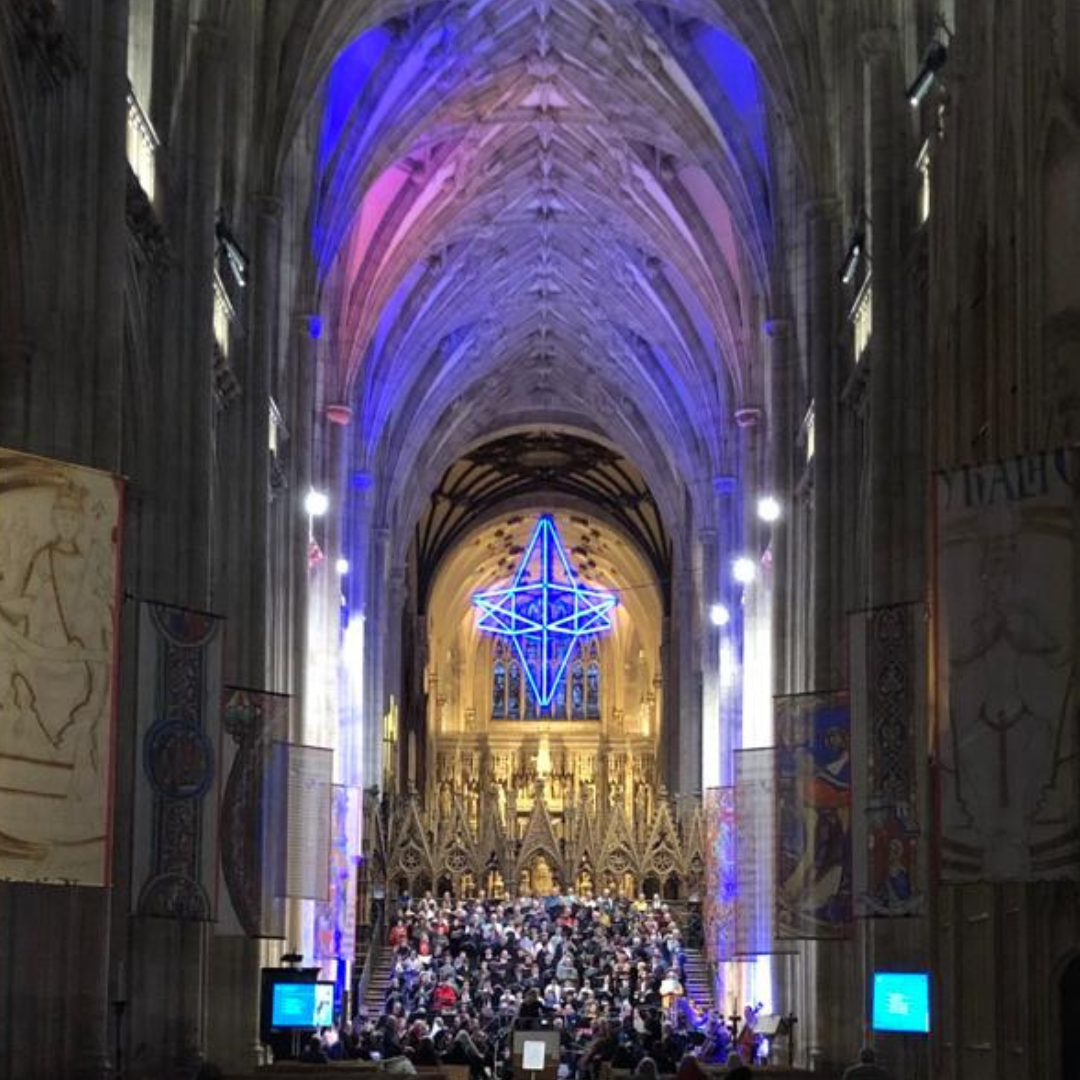 Poulenc’s Gloria set the high standards for the evening, embracing all the talents on offer, with the benefit of soloist Anna Dennis complementing the soaring sounds of choir and orchestra. Vaughan Williams’ Serenade to Music was presented in its later orchestral version, giving the choir a well-earned rest, and showcasing the solo violin talents of James Toll, leader of the orchestra and Head of Strings at Winchester College. Stanford’s rousing Gloria completed the first half, again with Anna Dennis. This Gloria was composed for the coronation of George V and included in the coronations of HM King George VI and HM Queen Elizabeth II. If we hear it again in 2023, this performance set a high bar.
Poulenc’s Gloria set the high standards for the evening, embracing all the talents on offer, with the benefit of soloist Anna Dennis complementing the soaring sounds of choir and orchestra. Vaughan Williams’ Serenade to Music was presented in its later orchestral version, giving the choir a well-earned rest, and showcasing the solo violin talents of James Toll, leader of the orchestra and Head of Strings at Winchester College. Stanford’s rousing Gloria completed the first half, again with Anna Dennis. This Gloria was composed for the coronation of George V and included in the coronations of HM King George VI and HM Queen Elizabeth II. If we hear it again in 2023, this performance set a high bar.
The second half was no less than first-rate. The processional I Was Glad by Hubert Parry was superb, the full choir and orchestra sending the wonderful words soaring confidently ‘into the house of the Lord’.
This was followed by Fauré’s Cantique de Jean Racine, a piece he wrote at just nineteen while training in classical and religious music at the École Niedermeyer in Paris. The words were taken by Racine from a Latin hymn and the gentle but powerful French floated over the audience providing a beautiful moment of calm.
 Howard Ionascu then took over from Sarah Baldock to conduct the Chapel Choir in Charles Villiers Stanford’s For Lo I Raise Up. An interesting piece which showcases different sections of the choir in powerful harmonies, particularly the Quirister trebles and an accomplished solo by James P.
Howard Ionascu then took over from Sarah Baldock to conduct the Chapel Choir in Charles Villiers Stanford’s For Lo I Raise Up. An interesting piece which showcases different sections of the choir in powerful harmonies, particularly the Quirister trebles and an accomplished solo by James P.
A concert on 22 November could not conclude without a piece dedicate to Saint Cecilia herself and the finale was just this. Gerald Finzi was commissioned to write For St Cecilia in 1947, using text written by the then heavyweight poet Edmund Blunden, a collaboration which resulted in several works. Included is a list of saints, St Valentine, St Dunstan and St Swithun so where better to perform it than in Winchester. The tenor Nicky Spence performed and filled the Cathedral’s nave with fabulous sound, alongside the choir, full orchestra and Benjamin Cunningham playing the organ throughout. A truly uplifting celebration of music and singing. Hats off too to Sarah Baldock for putting it all together. After such a fantastic concert, I doubt the audience, and probably most performers, would disagree with Blunden’s final line, we were all: “Blest in the life of universal song.”
Philip Guest & Drusilla Brodrick
A View from the Choir
Glee noun - A part-song for three or more voices and frequently consisting of contrasted movements, hence ‘glee club’ a society for singing glees and other part-songs.
Who knew? The ever-helpful Wikipedia relates that many US Colleges have had ‘Glee Clubs’ for over a century, with Harvard’s being established back in 1858. Winchester College had to wait a further six years for its own to be formed, by the newly appointed Second Master George Ridding and C H Hawkins (he of ‘Chawkers’), to add to then flagging artistic life of the school. At that time, Sabben-Clare tells us, Quiristers were still selected more for their “good behaviour and deserving conduct” than any discernible musical talent.[1]
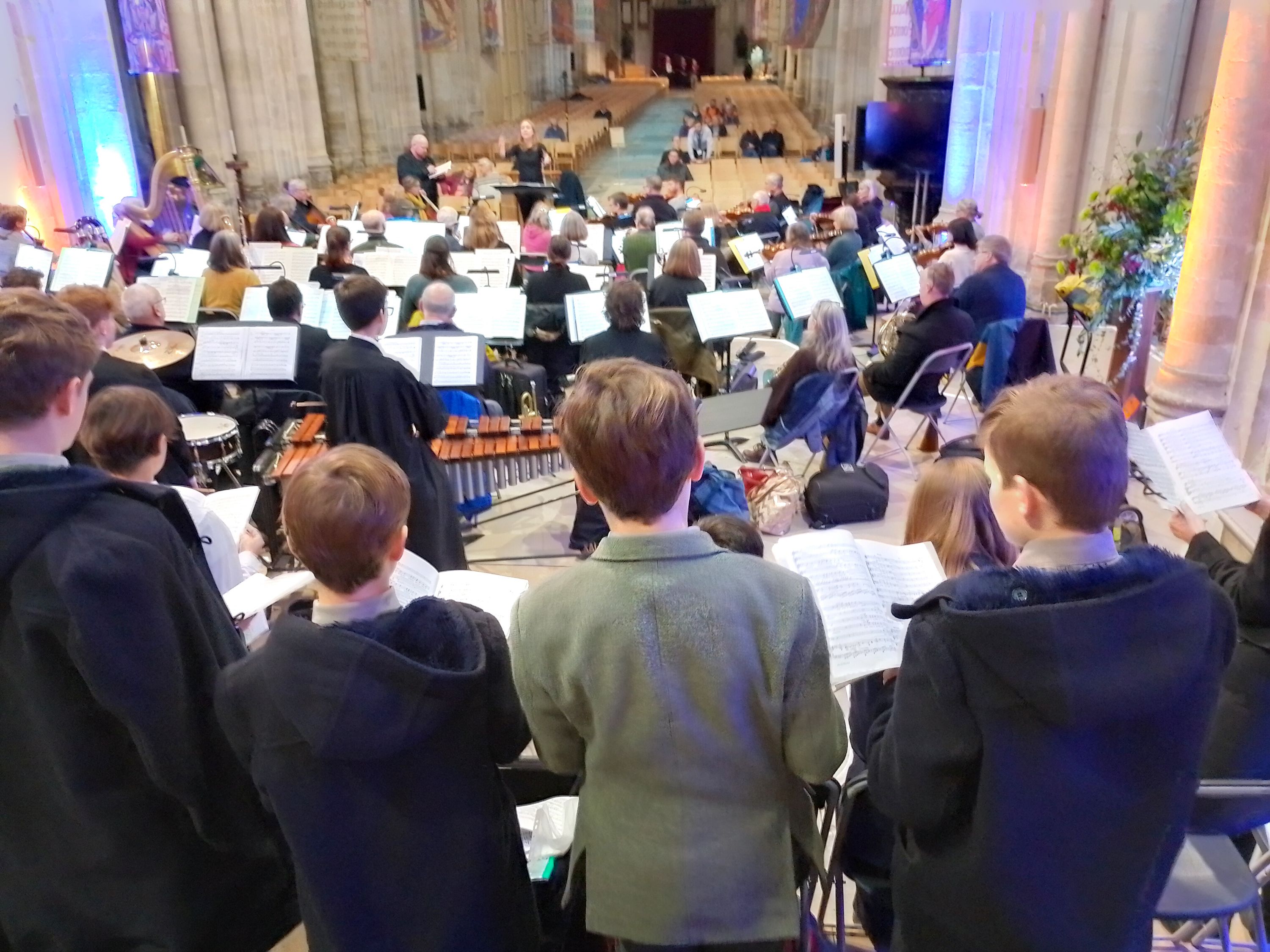 Under the guidance of Director of Music (later Sir) George Dyson, appointed in 1924, the musical life of the College was energised through the twentieth century. At its zenith over a third of the boys in the College belonged to the Glee Club. ‘Not very many of them could read music, and no one with any sort of voice therefore needed to feel discouraged from joining.’[2] How fortunate, then, these same principles have endured and Q (and, indeed, other WinColl) parents today have, on this same basis, the weekly opportunity to make music alongside their sons.
Under the guidance of Director of Music (later Sir) George Dyson, appointed in 1924, the musical life of the College was energised through the twentieth century. At its zenith over a third of the boys in the College belonged to the Glee Club. ‘Not very many of them could read music, and no one with any sort of voice therefore needed to feel discouraged from joining.’[2] How fortunate, then, these same principles have endured and Q (and, indeed, other WinColl) parents today have, on this same basis, the weekly opportunity to make music alongside their sons.
There follows, in this story, some form of Winchester alchemy that transforms such an unpromising-sounding rag-bag choral society into the group that proudly contributed to the magnificent sounds that filled the Cathedral on Tuesday evening. The alchemist-in-chief was the new College Director of Music, Sarah Baldock. It was made quite clear to us all at the first rehearsal (of a mere seven), in the most engaging of ways, that the programme was to be boldly ambitious; enthusiasm and commitment were to be valued every bit as much as any innate ability, which may often have proved previously latent. Our target was to be a celebration of St Cecilia’s Day.
Those of us used to warbling their way through the more traditional choral society fare of Mozart, Handel and Purcell were instead challenged by Poulenc, Fauré and Finzi. Where dissonance had once been a symptom of the lack of audition hurdle it was now to be relished and appreciated for its evidence of twentieth-century compositional genius! Those whose hunt for a starting note had often been as fruitless as the recent quest for harmony in the Tory party were emboldened by the support of the Chapel Choir and, on concert day itself, the Winchester Music Club.
The result: a rhapsody of elation as we sang our hearts out towards the great West Window of the cathedral, accompanying world-class soloists who affirmed our inner belief that, as a group, we were capable of producing the most wonderful sounds that reverberated around the nave before us. We adjourned content to the Wykeham Arms for restorative lubrication. Singing in the shower would never be quite the same again.
Jerry Pett
